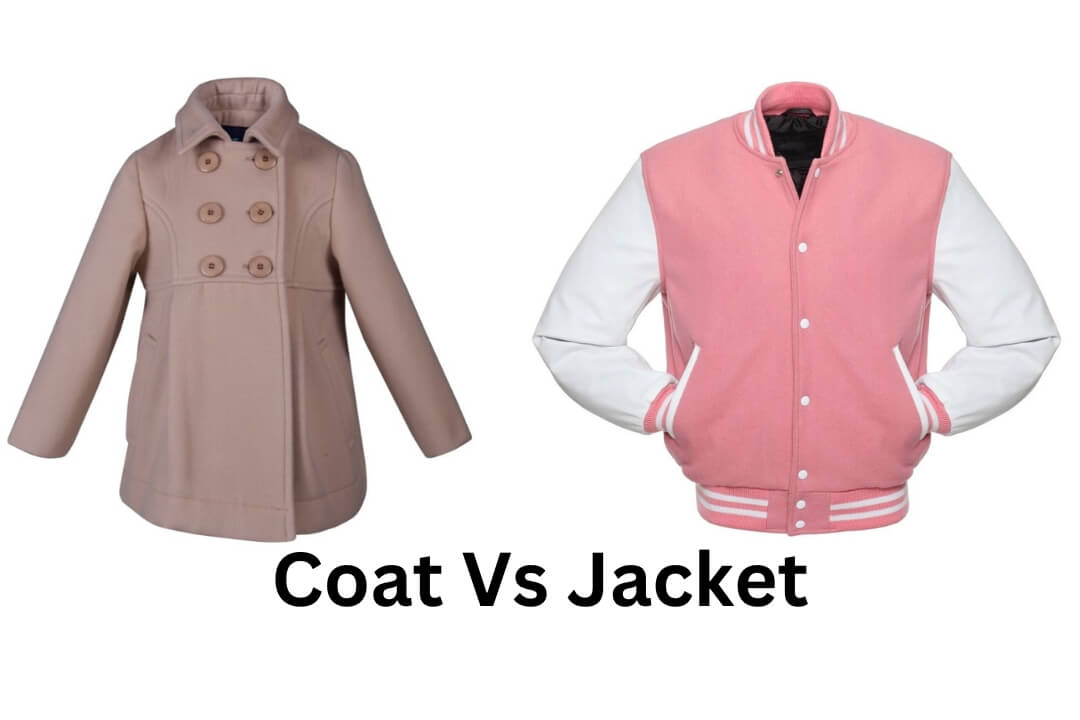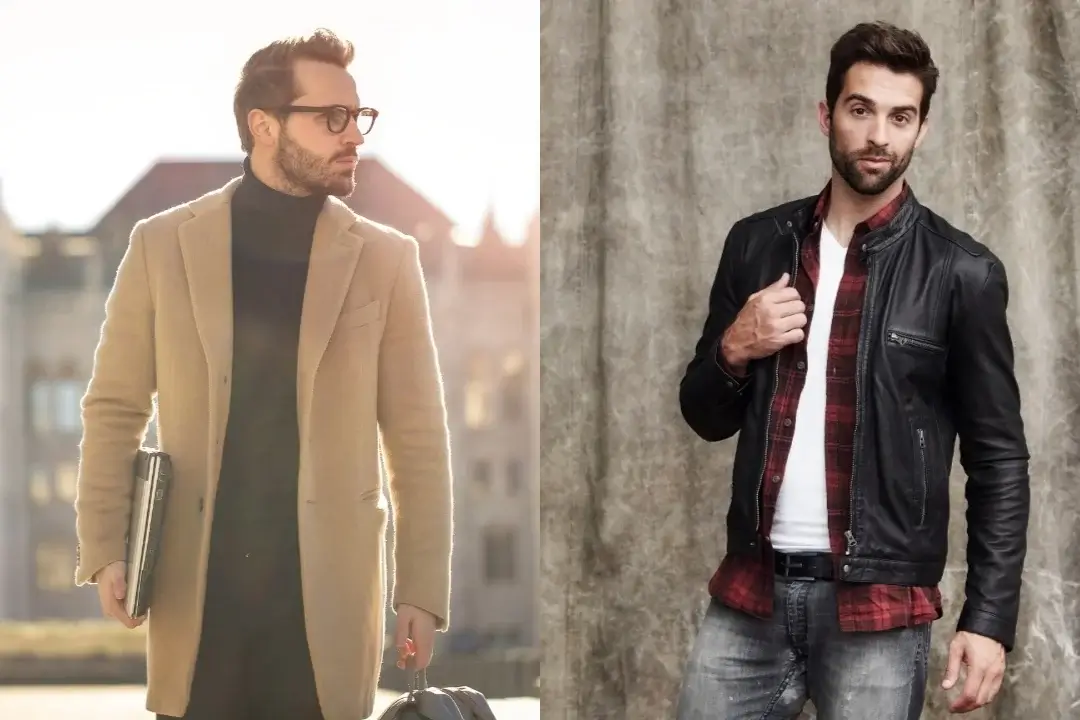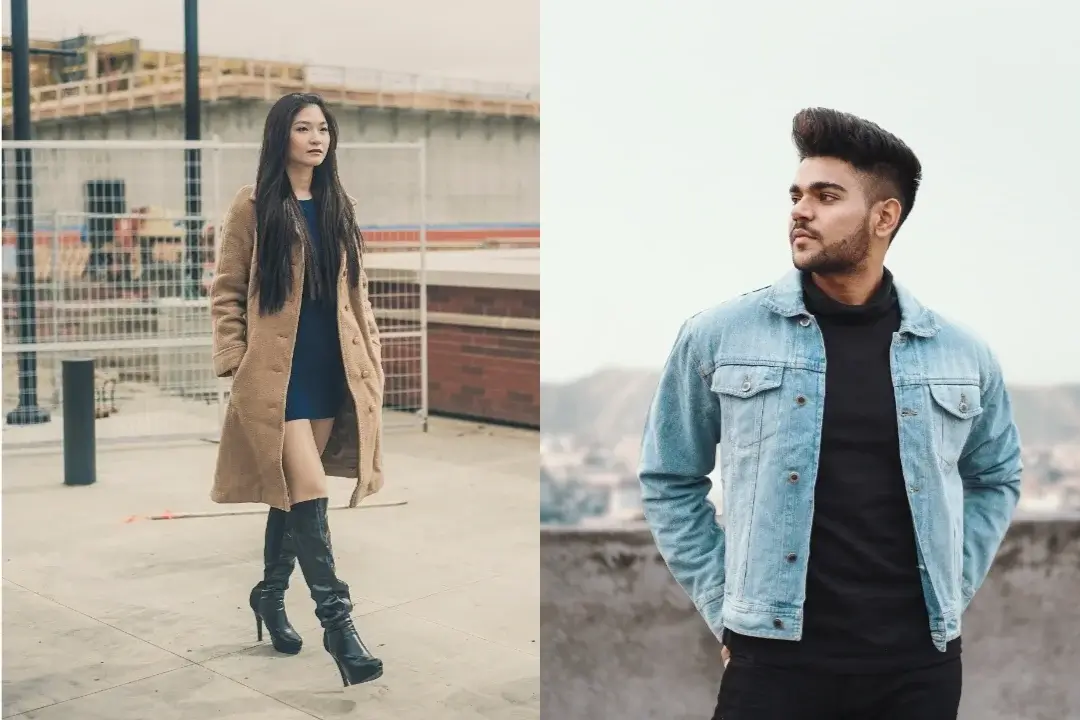
“The Major Difference between coat vs jacket Unveiled! Find Out which One is best option for you? ”
When it comes to outerwear, many people often struggle with the difference between coat vs jacket, and maybe you are also one of them. While they may seem interchangeable and visually similar, there are actually various key characteristics that set them apart. In this in-depth and helpful blog post, we will dissect the nuances between coats and jackets, demystify their true differences, and help you make informed decisions on which type of outerwear is best for your style and needs. We will also reveal the main differences between these two in terms of material, style, fit, warmth, and much more. So let's get started learning about jacket vs coat.

A coat and a jacket are both popular forms of outerwear, but they serve different purposes and boast distinct attributes. A coat is typically a longer piece of clothing designed to provide more warmth and protection against harsher weather conditions. In contrast, a jacket is usually shorter, lighter, and more versatile, making it excellent for layering and milder temperatures.
Coats:
Jackets:
In order to comprehensively understand the differences between coats and jackets, let's examine various factors that set them apart.
Coats are typically made longer; they can extend to knee-length or even lower and provides better coverage against the elements. Conversely, jackets are generally made shorter; they end at the waist or hips.
Coats are made up of heavier, sturdy, and more insulating materials like wool, tweed, or cashmere. On the other hand, jackets come in a range of materials like denim, leather, or polyester, and they are also suitable for various weather conditions and activities.
Coats feature a dense fabric option and insulation to keep you warm during colder seasons. Jackets are lighter and more versatile they are made up of less dense materials, which makes them perfect for transitional weather or for layering during colder months.
Coats give a more formal and sophisticated appearance, which makes them a good option for professional settings or dressed-up occasions. Jackets, however, can range from casual to semi-formal, offering various options for different events and personal styles.
Both coats and jackets have sleeves as a standard feature in them, but the type and style may vary depending on the design. For instance, many coats have more structured, tailored sleeves, while jackets typically offer a more relaxed fit.
Coats usually have a more tailored and fitted silhouette to help trap warmth and maintain a well-polished look. Alternatively, jackets generally offer a more relaxed and adaptable fit, allowing for more freedom of movement and layering options.
As mentioned earlier, coats are specifically designed to provide a higher level of warmth due to their heavier materials and longer lengths. Jackets, while they can still provide warmth, are better suited for milder temperatures and serve as a versatile layering option.

The decision to choose between a coat vs jacket ultimately depends on your specific needs, personal style, and the occasion. If you require more warmth and coverage in colder climates or are attending a formal event, a coat may be the more suitable choice. Should you need a versatile and lightweight outerwear item for transitional weather or a casual gathering, a jacket would be the ideal option for you.
In conclusion, both coat vs jacket are popular types of outerwear, so it's essential to acknowledge their respective differences - particularly with regard to length, material type, material density, style, sleeves, fit, and warmth. After understanding all these factors and how they align with your individual preferences, lifestyle, and wardrobe requirements, you can confidently make informed decisions when selecting the perfect outerwear piece for any situation or season.
Q1: What occasions are jackets more suitable for?
As per our suggestion, Jackets are a more good option for casual outings, semi-formal events, and outdoor activities due to their shorter length, lighter materials, and relaxed fit.
Q2: When should one wear a coat?
The coat is best for colder climates, professional settings, and formal events due to its longer length, heavier materials, and tailored fit.
Q3: What are the materials used in Jackets?
There is a wide variety of materials or fabrics used in jackets, such as cotton, wool, polyester, nylon, leather, down, fleece, and many other synthetic materials.